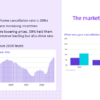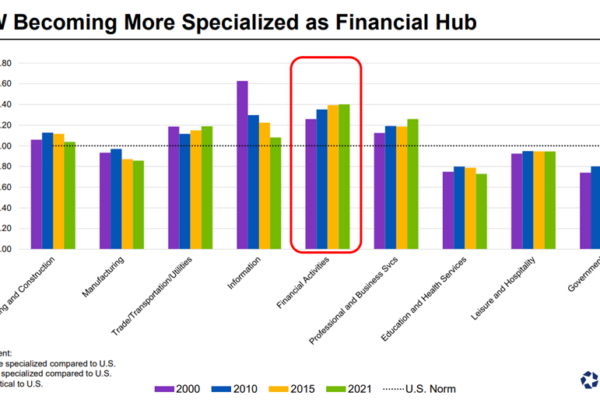Dallas March 2021 – Key Take Aways
- The meeting attendees discussed the lingering impact last month’s winter storm has had on electricity bills and how it has continued to affect some of their tenants and clients.
- Sharon Friedberg with Fischer Company shared that she has clients who have tenants experiencing extremely high electricity bills because of the winter storm. For example, one of the tenants who is currently paying $400/month will be billed $1,463 this month and through the rest of 2021.
- Along the same lines, Robert Gundy with RTG Capital shared that if you were not under contract with your electric company, you would normally pay $.5/kilowatt but during the storm it increased to $9/kilowatt.
- Scott Lynn with Scott Lynn Commercial feels things are at a “pre-Covid level with regards to enthusiasm and aggressiveness” where deals are concerned. Although he is optimistic, he remains ‘watchful”.
- Melinda Etnyre with Huey Enterprises shared that with regards to company’s hiring new talent, she has seen a lot more flexibility in terms of allowing them to stay remote. It has helped the hiring process because people no longer have to fly cross country anymore to be interviewed which helps with the hiring process. According to Melinda “it is definitely a different market out there right now”.
- Phil Crone with the Dallas Builders Association shared that lumber prices are still extremely high compared to this time last year, stating that lumber “is 180% over what the cost was pre-Covid”.
- Laila Assanie, Senior Business Economist at Federal Reserve Bank of Dallas, shared the following with the group: We are seeing continued improvement in the Texas economy. The high frequency data indicators suggest stable to improved conditions in the state. Of note is OpenTable’s Texas dining out index which in recent weeks rose to its highest level since the series began last February. Based on national GDP forecasts, COVID-19 hospitalizations, and oil futures prices, the Dallas Fed estimates that Texas jobs will increase strongly this year at nearly triple the state’s annual average job growth rate.
- Guest speakers. Martin Karamon and Chad Wiley with Cherry Bekaert, shared the following Presentation: “Biden’s Tax Plan and it’s Effects on Commercial Real Estate and Employer Retention Credit”.
- The Employee Retention Credit or “ERC” is a refundable tax credit against certain employment taxes equal to 50% of the qualified wages an eligible employer pays to employees after March 12, 2020, and before January 1, 2021.
- The maximum credit in 2020 was $5,000 per employee but now in 2021 the maximum credit is $28,000 per employee, an increase of $23,000.
- With regards to the “Biden Tax Impact on Commercial Real Estate”, the key proposals that are on the table first include: More direct payments to individuals; expanding the child tax credit, earned income credit and the child tax care credit; extending to September 30, 2021 the paid sick and family medical leave tax credit; and extending the employee retention credit to eligible employers through 2021.
- Real Estate Transactions – 1031 exchange could possibly be eliminated for income of $400,000 or more; proposal to increase in funding for NMTC (New Markets Tax Credit) – an additional $5B was added to this program in December.





Recent Comments